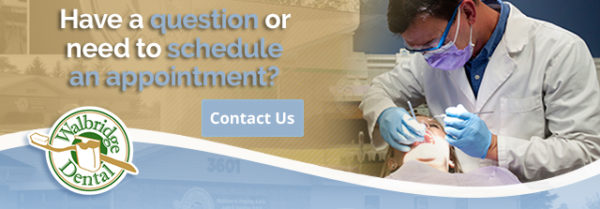
It’s a well-known fact that sugar promotes tooth decay. But when it comes to oral health, can you have your cake and eat it too? In the quest for healthy teeth, sugar substitutes have been touted as the answer. But do artificial sweeteners cause tooth decay?
What Makes Sugar Cause Tooth Decay?
Let’s look at how sugar consumption results in tooth decay. When you consume sweets, that sugar you’re eating is also feeding the bacteria in your mouth. This is not an area where multi-tasking is beneficial! However, the tooth decay isn’t caused by the sugar itself. Cariogenic bacteria (those that cause tooth decay) in your mouth feed on the sugar you consume. The waste they produce – in the form of acid – is what attacks the enamel of your teeth leaving them vulnerable to decay. So while the sugar doesn’t directly cause tooth decay, the more sugar you consume, the more acid is produced by the bacteria feeding on it, and the quicker you can experience tooth decay.
Do Artificial Sweeteners Cause This Too?
What about sugar substitutes? Are they as bad for your teeth as sugar? The good news is that bacteria don’t feed on artificial sweeteners like they do sugar. So, do artificial sweeteners cause tooth decay? According to Colgate Oral Health Network, “[Artificial Sweeteners] cannot be metabolized by cariogenic bacteria and are therefore noncariogenic.” In other words, no. Artificial sweeteners don’t contribute to the acid in your mouth that decays your teeth since they don’t feed the bacteria which produce it. However, sugar substitutes shouldn’t be considered as fighting bacteria, they’re simply not fuel for bacteria.
The other good news is that proper oral hygiene and dental care, in addition to reduced acidic waste from sugar substitutes, means reduced – or eliminated – decay!
So Are Artificially Sweetened Foods Safe for Your Teeth?
While artificial sweeteners don’t cause tooth decay, they also don’t make problematic foods less problematic. This means that soft drinks still contain carbonic acid even though they use sugar substitutes. That acid will still wear down your tooth enamel.
Simply substituting an artificial sweetener for sugar won’t reduce the acidity of a food that’s naturally acidic. This is why large quantities of citrus drinks can cause dental problems when consumed over long periods of time. Keep in mind that acidic foods directly wear at the enamel of your teeth.
Water can help remove loose bacteria and food particles as well as washing away acidic or sugary substances that might lead to decay. It’s a great idea to follow any food or drink, especially sweet or acidic ones, with a drink of water.
Do Artificial Sweeteners Help with Oral Health?
Artificial sweeteners can help with oral health. Here are two of the best reasons why sugar substitutes can help you maintain healthy teeth.
Xylitol
One artificial sweetener, xylitol, is known for fighting bacteria in your mouth, or more commonly for preventing cavities. Xylitol is one of those sugar substitutes that cannot be metabolized by the by bacteria in your mouth, so it doesn’t actually feed them.
Commonly found in everything from chewing gum to soda, xylitol does double duty. It makes foods taste better while it “starves” the bacteria in your mouth. “Some studies indicate that sugar alcohols such as xylitol and sorbitol used in chewing gums and as artificial sweeteners may have cariostatic (cavity inhibiting) effects,” according to the American Dental Association.
So chewing a stick of gum with xylitol not only freshens your breath, it helps prevent cavities.
Reduced Sugar Intake
Whenever you choose an artificially sweetened food, there’s a good chance that you’re substituting it for a sugar-sweetened version. Not only will this decrease your sugar intake, it will cut down on the potential damage caused by bacteria in your mouth.
Artificial sweeteners don’t cause tooth decay and they don’t eliminate the bacteria in your mouth, but they do help reduce the acid in your mouth leading to a much healthier smile.

Do You Have Dental Health Questions? Schedule an Appointment!
We can help make sure you and your family are brushing correctly. If you’re concerned or just looking for information, the professionals at Walbridge Dental provide complete family dental care to families in the Millbury community. Contact us online to set up an appointment now or call us at 419-836-1033.
Connect on Social Media!
